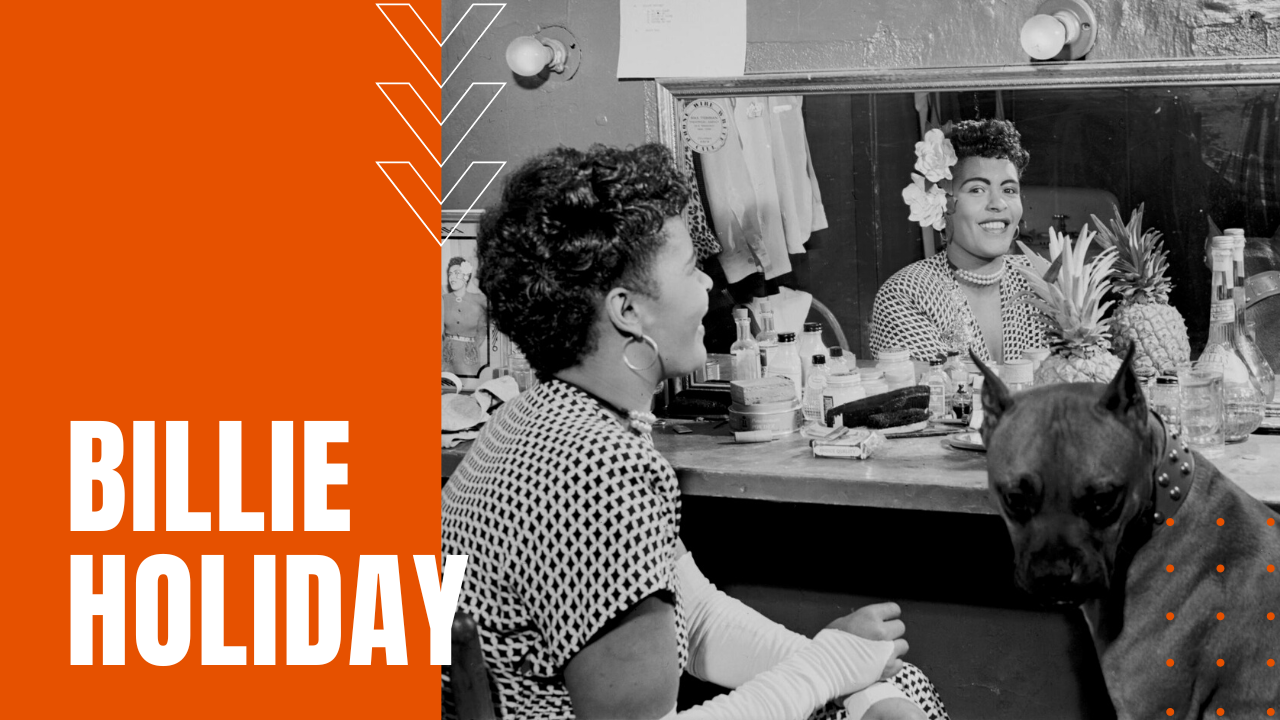Billie Holiday: Biography of a Jazz Icon

Born Eleanora Fagan in 1915 Baltimore, Billie Holiday grew up in extreme poverty, dropping out of school in the fifth grade to run errands for a madam and her working girls at a local brothel. Moving to Harlem with her mother when Billie was twelve, her continued struggles with poverty led her into prostitution, which eventually resulted in her arrest on pandering charges.
Billie’s First Singing Gig
At age seventeen, Billie looked for work as a dancer in a popular Harlem speakeasy named Pod and Jerry’s Log Cabin, and when no positions were available, she blew the owner away when she auditioned as a singer.
After word of Billie’s talents spread throughout Harlem, she soon found work in a number of jazz clubs, and by the still tender age of 20, her bluesy vocal style caught the attention of jazz producer, John Hammond, who proclaimed her the greatest singer he had ever heard. With Hammond’s support, Billie spent much of the 1930s working with a wide range of top jazz musicians of the day, including Benny Goodman, Teddy Wilson, Duke Ellington and saxophonist Lester Young.
Lester Young
As their careers unfolded, Young and Holiday developed a lifelong friendship, giving each other their now-famous monikers, Lady Day and the Prez. Young would also collaborate with Billie to create music that highlighted her unconventional talents, including songs like This Year’s Kisses and Mean To Me.
Billie’s audience expanded dramatically after her 1939 drop of Strange Fruit—a deeply powerful song about lynching—while songs such as Good Bless the Child and Gloomy Sunday highlighted not only her undeniable talent, but her deep expressions of angst and pain during the nation’s ongoing embrace of racism.
Success vs. Addiction
While that same racial landscape made it difficult for Billie to tour, she became one of the highest-paid performers of her time, which no doubt did much to fuel her growing addition to heroin and alcohol. Plagued by bad relationships and health problems exacerbated by addiction, after the death of her mother in the late 1940s, Billie was repeatedly arrested on possession of heroin charges, until she checked herself into a rehab center in hopes of breaking her addictions, and while she managed to free herself from heroin, by the late 1950s, Billie’s ongoing struggle with alcoholism ruined her once melodic voice.
When Did Billie Holiday Die?
Passing away in 1959—at just 44 years of age—Billie Holiday is remembered as one of the greatest jazz vocalists of all time, leaving behind a body of work that speaks of hard times, racial injustice and triumph over adversity, making the turbulent life of Billie Holiday, a lasting mainstay in the uniquely American annals of jazz.
